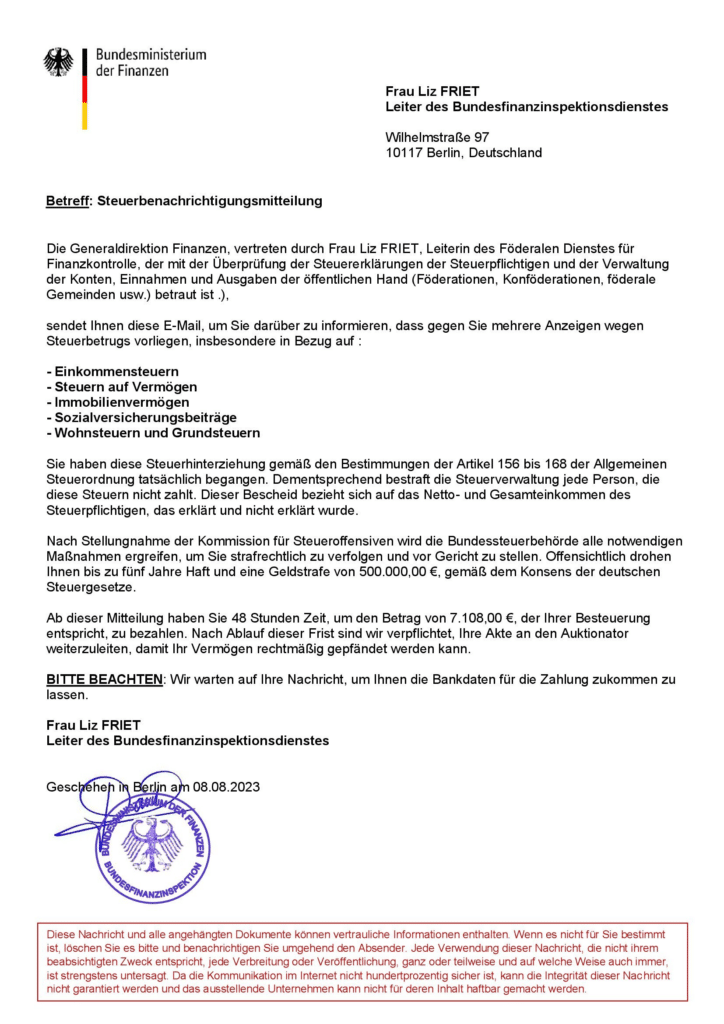It sounds like something out of a bad movie: a seemingly official message from the tax office threatening hefty penalties. But instead of the clerk, sophisticated fraudsters are on the other end of the line.
It's playing with fear. Many people know the uneasy feeling when the letter from the tax office is in the mailbox. Now imagine you receive an email with subject lines like “Tax notice file number 4785-OP.UT”. If you open it, you could face a fine of 500,000 euros and even prison. But wait – something is wrong here.

The stitch is clever. Senders like “General Directorate of Finance” sound trustworthy. There are also threats that can cause many people to panic. Although such emails are often incorrect or poorly worded, stressed or anxious recipients often miss these details.
What is behind the supposed tax office email?
If you take a closer look, you will notice that the sender addresses are incorrect. Instead of official German domains, there are endings from Italy, Bulgaria or Spain. But why this effort? Quite simply: it's about money and data. The recipients should either transfer money directly or reveal their personal data, for example by sending passport photos.
There are similarities with other scams because the scam is not new. There have been similar fraud attempts in the past, in which the perpetrators posed as BKA, Europol or Interpol. Sometimes links are sent that lead to phishing in online banking or contain malware.
How do I protect myself?
- Remain skeptical : Always be skeptical of unexpected emails with drastic demands or threats.
- Check sender : Does the email address match the official address of the authority?
- Don't click links : Don't download anything or click on any links until the email has been identified as safe.
- Find personal contact : If in doubt, ask the responsible authority directly - but not using the contact details from the suspicious email!
- Use virus scanners : Check your computer and email inbox regularly with an up-to-date virus scanner.
What to do if you suspect? If you suspect you have been a victim of fraud, inform your bank immediately. It is also advisable to file a report with the local police.
Conclusion
Digitalization offers fraudsters more and more opportunities to trap people. But with a healthy dose of suspicion, knowledge and the correct handling of suspicious emails, the risk can be minimized. Stay vigilant and don’t fall for the “tax assessment in a digital guise” scam!

Mimikama.education
can impart media literacy through targeted lectures and workshops. Various target groups such as students, teachers and parents can be reached and sensitized. How do search engines work?
How can I search images? These techniques are particularly helpful for exposing fakes, hoaxes or dangerous hoaxes. NEW! Geoguessing workshops at Mimikama! Turn the search for truth into an exciting adventure with our geoguessing workshop!
This fact check is eye-opening ! Former McDonald's employees richer by 55,000 euros in just three months?
Notes:
1) This content reflects the current state of affairs at the time of publication. The reproduction of individual images, screenshots, embeds or video sequences serves to discuss the topic. 2) Individual contributions were created through the use of machine assistance and were carefully checked by the Mimikama editorial team before publication. ( Reason )

